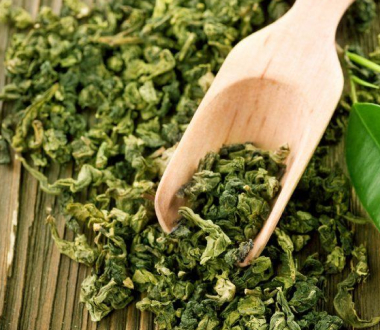1. Contains plant-based antioxidant compounds
Green tea contains a type of polyphenol called a catechin. Catechins are antioxidants that help prevent cell damage and provideTrusted Source other health benefits.
The most well-known and abundant catechin in green tea is epigallocatechin-3-gallate (EGCG), which researchTrusted Source has found may be involved in improving various health conditions or markers of disease.
Summary
Green tea has polyphenol antioxidants, including a catechin called EGCG. These antioxidants could have various beneficial effects on health.

2. May improve cognitive function
A 2017 research paperTrusted Source found that drinking green tea may benefit cognition, mood, and brain function, possibly due to compounds in green tea like caffeine and L-theanine.
A 2020 study also suggested that green tea is linked with a 64%Trusted Source lower chance of cognitive impairment in middle-aged and older adults. More human studies are needed to further explore this effect.
Summary
Green tea has functional ingredients that may combine to improve brain function and cognitive health. Green tea seems to be linked with a lower chance of cognitive impairment in middle and older age.

3. Could help with fat burning
A 2022 review found that the ability of green tea to positively influence your metabolism is enhanced with aerobic or resistance exercise.
That said, the National Institutes of Health Office of Dietary SupplementsTrusted Source suggests that while some studies do show an ability for green tea to improve how your body breaks down fat, its overall effect on weight loss is likely to be small.
Summary
Green tea may increase metabolic rate and increase fat burning in the short term, although not all studies agree. Green tea’s ability to improve fat burning is improved when paired with exercise.

4. Might lower the risk of some cancers
While the evidence is mixed and inconsistent, researchTrusted Source has linked drinking green tea with a reduced chance of developing some types of cancer, such as lung cancer or ovarian cancer.
A 2020 reviewTrusted Source found that while experimental research shows a modest beneficial effect, scientists could not conclude any consistent effects of green tea on overall cancer likelihood. Additional high quality research is needed.
Summary
There is some evidence of a relationship between drinking green tea and less chance of certain cancers. But, much more research in humans is needed to better explore this.

5. May protect the brain from aging
A 2020 studyTrusted Source showed that green tea was linked with lower levels of certain markers related to Alzheimer’s disease in people without current, known cognitive issues. Compounds such as EGCG and L-theanine may be responsible.
However, a 2023 study reported that drinking too much, 13 cups or more per day (all types of tea), could increase the chance of Alzheimer’s disease. Clinical evidence on how exactly green tea affects the human brain is lacking.
Summary
The bioactive compounds in green tea may support brain health. Green tea could be linked with less likelihood of neurodegenerative disease, but more clinical studies in humans are needed to clarify any effect.

6. Could help with oral health
A 2021 reviewTrusted Source of studies has found that drinking green tea, or using green tea extract, could be linked to better oral health.
However, most of the research on this subject did not examine human subjects. While results are promising, more clinical research in humans is needed.
Summary
There is encouraging evidence that green tea could help with oral health, but additional studies are needed.

7. May help with the managing blood sugar
A 2020 reviewTrusted Source found that green tea may help reduce blood sugar while fasting in the short term but does not seem to have an effect on blood sugar or insulin in the long term.
A 2021 study on Chinese adults also suggested a 10% lower chanceTrusted Source of death from type 2 diabetes for those who drink it daily.
Other reviews found no effects on any markers of blood sugar management in people with type 2 diabetes, so the findings are inconclusive. Read more about green tea and diabetes.
Summary
The research is mixed on the role green tea may play in lowering the risk of type 2 diabetes, or helping with the overall management of type 2 diabetes.

8. Might help prevent heart disease
A recent review of studies suggests that regularly drinking green tea could lower many risk factors of heart disease, such as blood pressure or lipids.
That said, there is still a lack of consistent, long-term evidence in human clinical trials able to show cause and effect.
Summary
Green tea could help lower some markers of heart disease. Studies show that people who drink green tea have a lower chance of heart disease, but more clinical evidence is needed to confirm the findings.

9. May help you lose weight
Several studies show that green tea may help with weight loss.
A 2022 study found drinking four or more cups of green tea daily was linked with a 44%Trusted Source lower chance of abdominal obesity, but the effect was only significant for women.
But, green tea does not seem to make any changesTrusted Source to your levels of hunger and fullness hormones, which help regulate your appetite. There’s also mixedTrusted Source evidence on weight loss with green tea in general.
Summary
Some studies show that green tea may lead to increased weight loss and lower fat accumulation in the abdominal area.

10. Might help you live longer
Green tea may have protective compounds against cancer and heart disease, which may help you live longer. ResearchTrusted Source from Japan found that those who drank five cups or more per day had a lower chance of death from all causes than those drinking one cup or less.
A 2021 study found that drinking seven cups of green tea daily decreased the risk of death from all causes by 62%Trusted Source, even among people who have had heart attacks.
Summary
Studies show that people who drink green tea may live longer than those who don’t.

